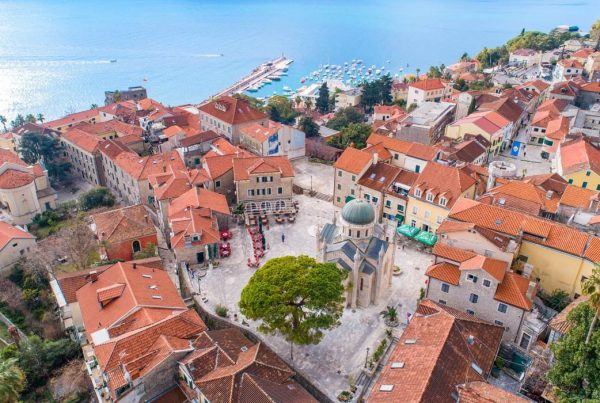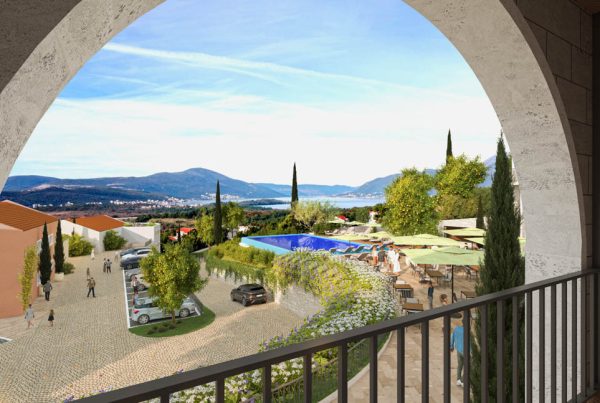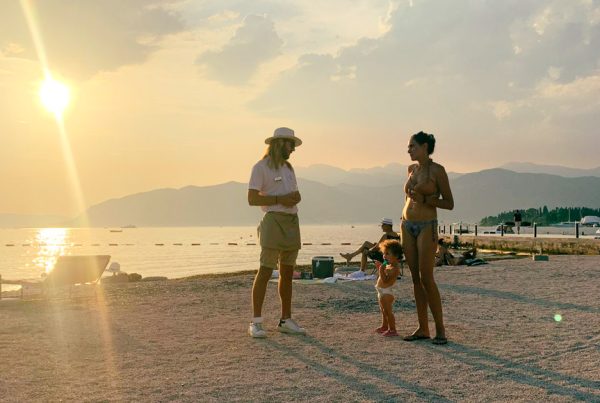Montenegro, a picturesque jewel in the Balkans, boasts a rich and diverse history spanning over a millennium. Its story is one of resilience, conquest, and transformation. From its early tribal origins to its turbulent past as part of Yugoslavia, Montenegro’s history is a tapestry woven with conquests, empires, and struggles for independence. This article will take you on a journey through the captivating history of Montenegro.
Ancient Montenegro
The history of Montenegro can be traced back to the Illyrians, an ancient Indo-European people who inhabited the Western Balkans. Several Illyrian tribes inhabited the region that would later become Montenegro, leaving archaeological remains and a rich cultural heritage behind. The Illyrians, skilled metalworkers and traders, established a network of settlements, including the prominent city of Doclea, which served as a significant trade hub. The site of Doclea was located near modern-day Podgorica, the capital of modern Montenegro.
Roman Influence
Montenegro’s territory fell under Roman control with the Roman Empire’s expansion. During this period, it witnessed the construction of several notable Roman towns and infrastructure. The Roman legacy left an indelible mark on the culture and architecture of the region.
Slavic Migration
The fall of the Western Roman Empire in the 5th century ushered in an era of migration. Slavic tribes began settling in Montenegro, gradually assimilating with the local population. These Slavic tribes laid the foundation for Montenegro’s distinct Slavic identity, which continues to shape today’s culture.
The Rise of Duklja
The medieval history of Montenegro is closely associated with the rise of the Serbian state. In the 9th century, the Serbs migrated to the Balkans, and by the 11th century, they established the mighty Kingdom of Duklja in the coastal areas of Montenegro. Ruled by the Vojislavljevic dynasty, Duklja achieved significant autonomy. Christianity was officially adopted during this period, marking a significant cultural transformation. Duklja played a substantial role in the region, particularly during the reign of King Stefan Nemanja, who expanded the Serbian state.
The Medieval Period
A series of external threats, including invasions by the Byzantine Empire and the Venetian Republic, marks Montenegro’s medieval history. The Montenegrins fiercely defended their territory and forged a strong warrior culture during this time. The most iconic figure of this era was Stefan Nemanja, the founder of the Nemanjić dynasty, which played a pivotal role in the history of the Balkans.
The Ottoman Chapter in the History of Montenegro
One of the most defining periods in Montenegro’s history was its resistance against the Ottoman Empire under leaders such as Ivan Crnojević and Skanderbeg. As the Ottomans swept through the Balkans in the late 14th and early 15th centuries, Montenegrin tribes united under the leadership of the Petrović-Njegoš dynasty. The famous battle of Kosovo Polje in 1389 saw Montenegrin warriors fighting alongside Serbian forces against the Ottomans, marking the beginning of their resistance. For centuries, Montenegro managed to maintain a degree of autonomy thanks to its rugged terrain and the fierce determination of its people.
Montenegro’s Independence
The 19th century brought significant changes to Montenegro. In 1878, the Congress of Berlin recognized Montenegro as an independent principality. Nikola I Petrović-Njegoš, who ruled from 1860 to 1918, became the first king of Montenegro. This marked a new era for the nation as it sought to modernize and establish diplomatic relations with other European powers.

Yugoslavia and Communism
After World War I, Montenegro became part of the Kingdom of Yugoslavia, a union of South Slavic nations. This period in the history of Montenegro was marked by political instability and the eventual establishment of a communist regime under Josip Broz Tito. Montenegro remained a constituent republic of Yugoslavia until the early 1990s, when the country disintegrated amid ethnic tensions.
Independence and Recent History of Montenegro
The disintegration of Yugoslavia in the 1990s marked a turning point in the history of Montenegro. In 2006, after a referendum, Montenegro declared its independence from the State Union of Serbia and Montenegro, becoming a sovereign nation once again. Since then, Montenegro has pursued economic and political reforms to strengthen its ties with the international community.
Royal Town Kotor- Where the New History of Montenegro Begins
Thanks to its distinctive scenery and rich cultural past, Montenegro is quickly becoming a top tourist and real estate investment destination. It combines multitudinous cultures that have shaped Montenegro’s history with nature’s splendor. This ensures that the tourism sector’s earnings will increase yearly, benefiting Montenegro’s real estate market. Therefore, investing in Montenegro will increase the worth of your money daily since the country’s tourism business doubles every year, especially in the Tivat-Kotor region.
Set in the heart of enthralling historical wonders, our luxury apartments at Royal Town Kotor allow you to buy Montenegro property for sale in Kotor. Since it offers you a calm lifestyle that will improve your quality of life, our Montenegro real estate is the most alluring option to invest in Montenegro. With an expertly created management system, our Royal Town Kotor apartments for sale allow investors and visitors alike to revel in the splendor of Montenegrin history in comfort and style.
Make A Mark on Montenegro’s History
Montenegro’s history is a testament to the enduring spirit of its people. From ancient Illyrian roots to the struggles for independence, the history of Montenegro is a captivating journey through time. Today, as a modern European nation, Montenegro continues to embrace its rich heritage while looking towards a promising future on the global stage.
With a wise investment in our apartments for sale in Kotor, you may turn this mesmerizing European setting into your second home. Would you like to talk to a member of our investment team at Royal Town Kotor and get more information? For project details and enticing prices, get in touch with us right away.
All rights of these persons prepared by Api Investment Doo (“API Group”) belong to API Group. All of these rights will be used, which will be greatly liked or not used, distributed, distributed, benefited from the use.







Planning retired in Europe.
So, looking for place to.
My wife and I are seriously considering emigrating to another country in the next few years. I like what I see of Montenegro and would like to continue to learn more.